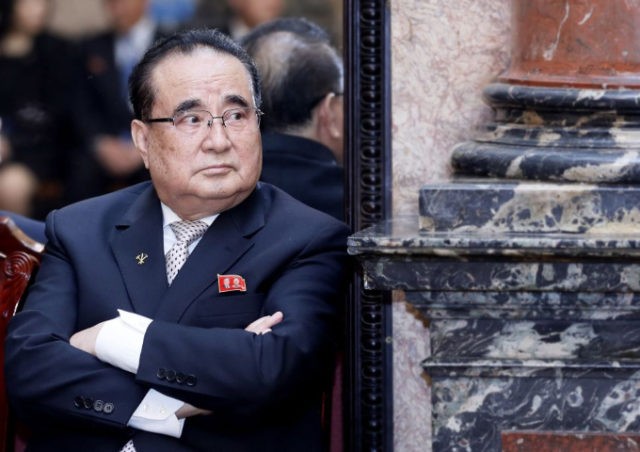The vice president of the Communist Party of North Korea met with senior members of the Cuban Castro regime in Havana on Thursday for a “work visit” to discuss “topics of mutual interest,” according to the Cuban Foreign Ministry.
Cuba and North Korea, two of the world’s most repressive Communist regimes, maintain close relations and tend to support each other’s causes on the world stage, particularly at the United Nations. Cuban President Miguel Díaz-Canel, who answers to dictator Raúl Castro, visited Pyongyang in November. Kim Jong-un forced North Koreans in the capital to partake in a massive parade to welcome him.
Ri Su Yong, vice president of the central committee of Kim Jong-un’s Workers’ Party of Korea and one of his top diplomats, met with his Havana analog, Roberto Morales Ojeda, to discuss “topics of mutual interest and both ratified their disposition to continue deepening the historic relations existing between their two peoples, parties, and governments,” according to the Cuban Foreign Relations Ministry (Minrex). The ministry called the meeting in a statement a “work visit” on the part of the North Korean envoy and did not name any specific issues the two discussed.
The statement vaguely acknowledged that the two also discussed “other topics on the international agenda.”
The North Korean state-run Korean Central News Agency (KCNA) also confirmed Ri’s visit, the second that the diplomat has made to the island in under a year, suggesting that Kim is prioritizing relations with Cuba as he struggles to keep his regime afloat amid historic international sanctions. Neither Minrex nor KCNA stated that Ri would meet with more senior members of the Castro regime, including Díaz-Canel or Castro himself. He did meet with both in July, the last time he was in Cuba.
Much has changed for North Korea since that visit. In July, Kim Jong-un had just completed a historic first meeting with U.S. President Donald Trump. That meeting, in Singapore, had yielded a joint statement in which both sides agreed to work towards peace, but the only specific step towards doing so that North Korea agreed to was the repatriation of remains of American soldiers killed during the active period of the Korean War (1950–1953). As neither side signed a peace agreement, the Korean War is still technically ongoing.
On this visit, Ri will contend with the aftermath of a second meeting between Trump and Kim in February, which ended when Trump abruptly walked out, citing Kim’s intransigence. According to Trump, Kim’s team was demanding the lifting of sanctions on the country, currently under the strictest international sanctions regime in modern history, without offering the definitive end of its illegal nuclear weapons program. A furious Kim has since restarted missile testing and protested that Trump had acted “in bad faith” during the meeting.
The tensions may make close ties with Cuba more necessary given the geographic proximity the island has to America.
The Cuban regime’s typically tense relationship with the United States has also deteriorated as a result of the Trump administration condemning the Castro regime’s human rights violations and finally allowing the implementation of Title III of the 1996 Libertad Act, more commonly known as Helms-Burton. The law allows American citizens who the Castro regime robbed of their property during the 1959 Cuban Revolution to sue corporations who use that property for profit, putting any company that does business with the Castro regime at risk of significant litigation costs.
Cuba is currently contending with the collapse of the economy of Venezuela, a nation which for decades propped up the island’s economy with free oil shipments. As the Castro regime needs Venezuelan money to survive, that nation’s collapse has triggered rationing of chicken, bread, and other basic foods and other household items. The government has simultaneously blamed the implementation of Helms-Burton for the situation and claimed that the Cuban people support having their food rationed.

COMMENTS
Please let us know if you're having issues with commenting.